Builders, pricing, contracts - what do you all think?
luckymom23
16 years ago
Featured Answer
Sort by:Oldest
Comments (28)
hmp2z
16 years agolast modified: 9 years agotoomuchtime1
16 years agolast modified: 9 years agoRelated Discussions
First time Builder-What do you think of our plan.
Comments (12)Four kids and no place for them to play indoors except their bedrooms or in the smallish living room??? And while you may not feel the need for privacy outside of your bedroom, when your kids get to be teenagers, they probably will. There is no place in your house where a teen could entertain a friend and not be right under Mom and Dad's nose EXCEPT to take the friend to their bedroom...which they might have to be sharing with a sibling. I know I'm old-fashioned but I'm still uncomfortable with the idea of tee- aged boys/girls taking friends of the opposite sex into their bedrooms - but I'm smart enough to know that teens need to feel like they can at least have a private conversation with their latest crush or even just work on homework and complain about their teachers without Mom and Dad automatically hearing every word. When I was a kid, I took my friends into the kitchen if Mom wasn't cooking or if she was getting a meal together and I had a friend over, she and Dad would retire to the kitchen together and let me and my friend have the use of the living room. With today's open floor plans, that doesn't work too well. So, IMHO, families with kids need some sort of secondary "living area" - whether that is a den or a library or a play room or an "owner's retreat" in the master bedroom, there needs to be some place where kids and adults can each have a little bit of privacy. I understand that you're on a budget so I'm hard pressed to understand why you would decide to have that two story living room. That second story space would be very cheap useable living space if you gave up the idea of a vaulting ceiling in the living room. Besides, having a two story ceiling in such a small room is probably going to turn it into echo chamber anyway. The vaulted ceiling is going to make the room taller than it is wide or long. It is probably going to wind up feel like you're sitting at the bottom of a well in there. Plus there are all the problems with keeping a two-story room at a comfortable temperature etc. If you want a somewhat higher ceiling in the living room, consider raising the roof in that room by 12 inches then put two step going up from the upstairs hallway into the room over the living room. Even if the main part of the ceiling in room upstairs room is just 7 ft high, it will still serve quite nicely as play space for the kiddos and could even be pressed into service as an extra bedroom if 4 kids should someday become 5...or if grandparents come to visit. While you may not like reach-in closets, they are MUCH more space efficient than walk-in closets. Especially given that the corners of walk in closets (where two bars meet at an L) are pretty much useless. You can only hang things on one of the two bars and those items hung in the corners are hidden by things hanging on the other bar and therefore seldom get found to be worn. When one is on a tight budget and building a smaller home, one NEEDS to be space efficient. In the same space where you have two "walk-in" closets upstairs (each with probably less than 6 linear feet of truly useable space each) you could have two back to back reach-in closets with 7 ft of useable space each PLUS a reasonably nice-sized 2 ft deep hallway linen closet. Doing that would then also allow you to basically flip the bathroom horizontally so that the closet space that now serves the bedroom in the back right side of the house could be used for a closet for the office instead. That way it really can BE a bedroom and you wouldn't have to cheat and call it an office because it has no closet. You could then rearrange the upstairs bathroom to make it more user friendly for 4 kids. Right now, if someone is in the tub (which is typically the bathroom function that takes the longest amount of time) and wants any privacy, no one else can use any other portion of the bathroom. With 4 kids, it would be GREAT if you could have separate rooms for bathtub, toilet, and sinks but I don't think you have the room for that. However, I do think you have room to create a larger more user friendly sink area and a separate room for the tub and toilet. Lots of kids are willing to share the bathroom while they brush teeth, comb hair, etc - but even then, they need room around the sinks for their toothbrushes, hair curlers, etc. The sketch below is rough because your images are too small to see the dimensions and when I magnify them to maximum extent, they're a bit fuzzy when translated to my paint program. But I think if you did something like shown, one child could be bathing and/or using the toilet while two others are using the sinks. Note that I recommend pocket doors for the kid's bath because that way you don't have to deal with swinging doors. Having vanities on two sides of the bathroom gives everybody a bit more space around his/her sink. Depending on the genders of your 4, girls could have one side and boys the other. As for downstairs, I agree that the master closet and masterbath need major reworking. YOU and your spouse may be perfectly satisfied with 3 feet of useable closet space each but if/when you want to sell this house, no potential buyer is going to be satisfied with that! That master closet would be a total deal breaker for me...and I'm not even a huge clothes horse. But I do want more space than THAT! Also, as another poster has already pointed out, there isn't enough space in front of the toilet and the two vanity sinks are too close together leaving you no room for storing anything. In fact, hardly room enough to set an electric toothbrush and a razor. And, that back "hallway" is a disaster. Too many doors opening into way too little space. The laundry room size is fine as is the powder room...but getting to/from them is not. I would shrink the master bedroom and start over on designing that space. Wish I had suggestions for making it all fit, but I really don't. Maybe someone else can chime in. I'm just afraid that if you build this house as it is currently designed you are going to be very unhappy with the results....See MoreWhat Do You All Think of This CL Sofa?
Comments (45)We should all look so good when we're 120! *Hijack alert* Hey I just found out that my beautiful leather garage sale find wasn't actually leather at all, it was naugahyde, and the old guy who I brought it to for reuplostering wanted $325 to re-cover it, re-tie the springs and re-do the webbing. He had some naugahyde in stock that was soft enough to "mark" when you sat on it, that is actually desirable to us crazies. And he would re-tack it, it has brass tacks too. Am I totally insane, not just a little touched? Is that a good deal, or do I need a rest in a little white room?? **back to our regularly scheduled program**...See MoreWhat do you all think about a refub laptops being sold ??
Comments (12)A couple years ago I purchased 2 Acer Ultrathin Laptops - Refurbished (Acer Aspire V5 573p-6896). These laptops have Intel i5 Processors, 4gb DDR3L RAM, 500gb Hard Drives, 1080p Touchscreen, Lighted Keyboard, 4 Speaker Dolby Home Theater, etc... with Window 8 installed. Both Laptops were in great shape and worked well (Every Feature Worked). I decided I wanted to Upgrade the RAM, maxing it out at 12gb. When I popped open the case I was surprised to find an Empty Slot for RAM and an Open Slot for a mSATA SSD Drive. Usually the manufacturers have 2 slots for RAM, both are used and if you want to upgrade the RAM you must replace it all! In this case, all I had to do was to purchase an 8gb Stick. Found another feature on these laptops I overlooked. These came equipped with a Thunderbolt Port Connection. These Ports were set to Replace USB (not sure if they still are or not)? It's my understanding around 7 devices can be run from One Thunderbolt Port (Daisy Chained). Whereas a USB, One Port, One Device! I decided to Upgrade both Laptops with a 256gb mSATA SSD Drive and keep the 500gb Hard Drives in the laptops and set them up just for storage (I did upgrade mine from a 5400rpm to a 7200rpm)! Both of these computers have turned into very nice computers with an SSD Drives for the Operating System (Upgraded to Windows 10). My Sister also purchased one of these Laptops. She too has been very happy with it. We paid $350 each for the Laptops. Then I paid around another $120 for the RAM and mSATA SSD Drive, Approx. $470 in each computer! All are still running great after 2 years!...See MoreFixed Price Contract, Ceiling Ht. Increases Builders Responsibility?
Comments (13)Pretty much repeating what others have said. The excavation costs for the rock is your responsibility. Drilling wells are the same -- costs shoot up if they hit rock. Not a good surprise, but what most of us face when building....ya never know what's under there..... I did ask how far down the yard would be and they said it would be just one step down from the back porch. This worries me a bit that the builder took this to mean "one step" was what you wanted. However, I would be asking TONS of questions about the basement, because that is a change in the plans which you did not initiate or approve. Perhaps it is a requirement because of conditions ("requirement" meaning to meet code, NOT because they think it is an improved way of doing it), but if they took it upon themselves to make a deeper basement because they thought it would make a nicer walk-out basement, that is on them. They should have had you approve the change....See Morebj_inatlanta
16 years agolast modified: 9 years agoanthem
16 years agolast modified: 9 years agodixiedoodle
16 years agolast modified: 9 years agoworthy
16 years agolast modified: 9 years agoluckymom23
16 years agolast modified: 9 years agojmagill_zn4
16 years agolast modified: 9 years agocharliedawg
16 years agolast modified: 9 years agoluckymom23
16 years agolast modified: 9 years agoanthem
16 years agolast modified: 9 years agoworthy
16 years agolast modified: 9 years agomightyanvil
16 years agolast modified: 9 years agoluckymom23
16 years agolast modified: 9 years agojmagill_zn4
16 years agolast modified: 9 years agoarebella
16 years agolast modified: 9 years agoanthem
16 years agolast modified: 9 years agojmagill_zn4
16 years agolast modified: 9 years agomightyanvil
16 years agolast modified: 9 years agoarebella
16 years agolast modified: 9 years agohardwrknmom
16 years agolast modified: 9 years agoanthem
16 years agolast modified: 9 years agobj_inatlanta
16 years agolast modified: 9 years agosniffdog
16 years agolast modified: 9 years agomightyanvil
16 years agolast modified: 9 years agoarebella
16 years agolast modified: 9 years agoluckymom23
16 years agolast modified: 9 years ago
Related Stories

GARDENING GUIDESNew Ways to Think About All That Mulch in the Garden
Before you go making a mountain out of a mulch hill, learn the facts about what your plants and soil really want
Full Story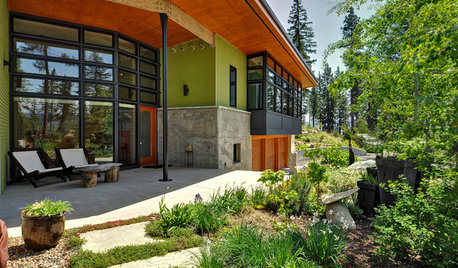
BUDGETING YOUR PROJECTConstruction Contracts: What Are General Conditions?
Here’s what you should know about these behind-the-scenes costs and why your contractor bills for them
Full Story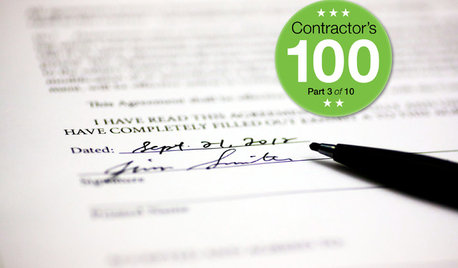
CONTRACTOR TIPSWhat to Look for in a Contractor's Contract
10 basic ingredients for a contract will help pave the way to remodel happiness
Full Story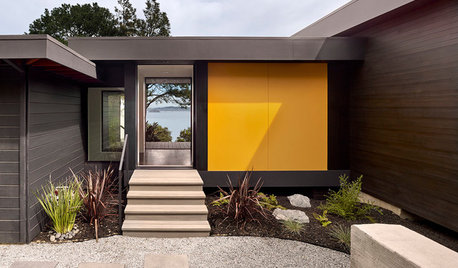
BUDGETING YOUR PROJECTConstruction Contracts: What to Know About Estimates vs. Bids
Understanding how contractors bill for services can help you keep costs down and your project on track
Full Story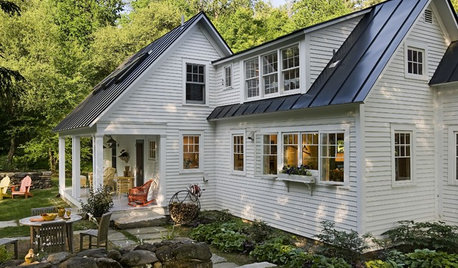
DESIGN PRACTICEContracting Practice: Marketing Your Business
To keep those projects rolling in, combine old-school techniques with the latest in high-tech networking
Full Story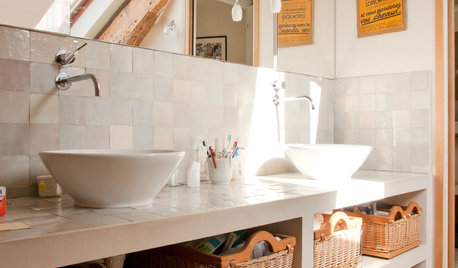
WORKING WITH PROSConstruction Contracts: How to Understand What You Are Buying
Learn how plans, scope of work and specifications define the work to be completed
Full Story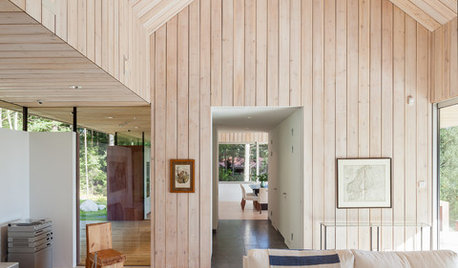
REMODELING GUIDES10 Tips for Choosing and Working With a Builder
Make your construction experience a happy one by following these steps
Full Story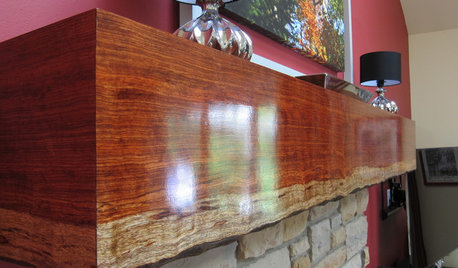
DECORATING GUIDESMantel Makeover: From Builder's Grade to Live-Edge Wood
See how an all-wrong mantel became a gorgeous fireplace focal point at the hands of an interior designer and her carpenter
Full Story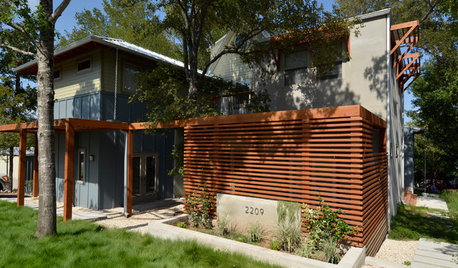
HOUZZ TOURSHouzz Tour: Visit a Forward Thinking Family Complex
Four planned structures on a double lot smartly make room for the whole family or future renters
Full Story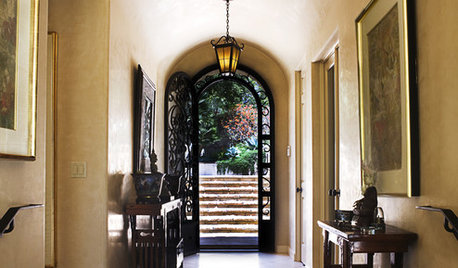
ARCHITECTUREThink Like an Architect: How to Work With a Design Wish List
Build the home of your dreams by learning how to best communicate your vision to your architect
Full Story




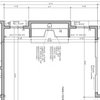
allison0704